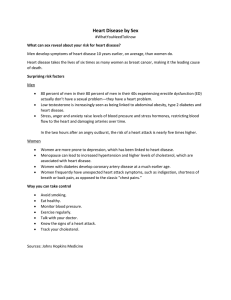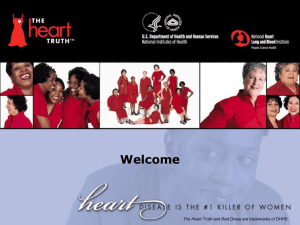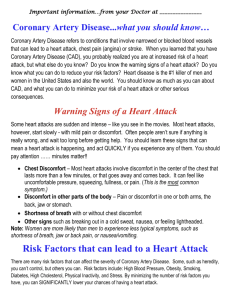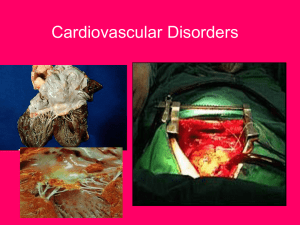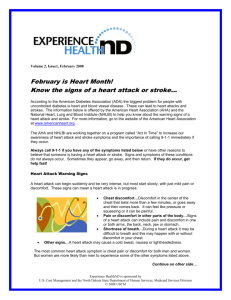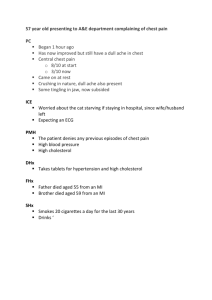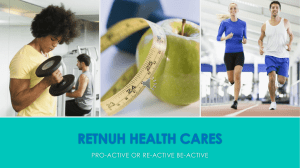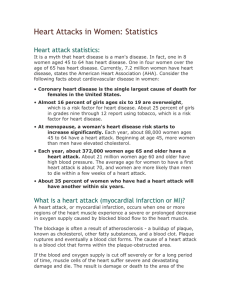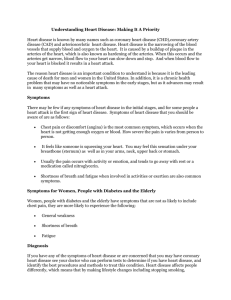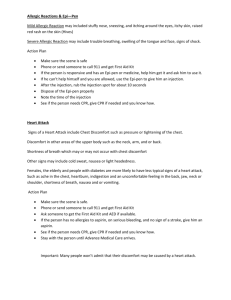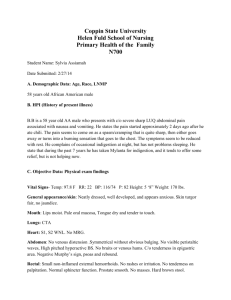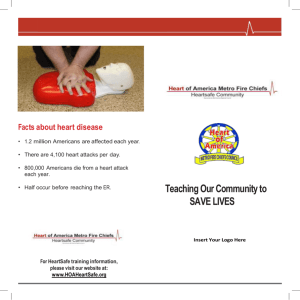HEALTH NOTES - Wheat Ridge Ministries
advertisement
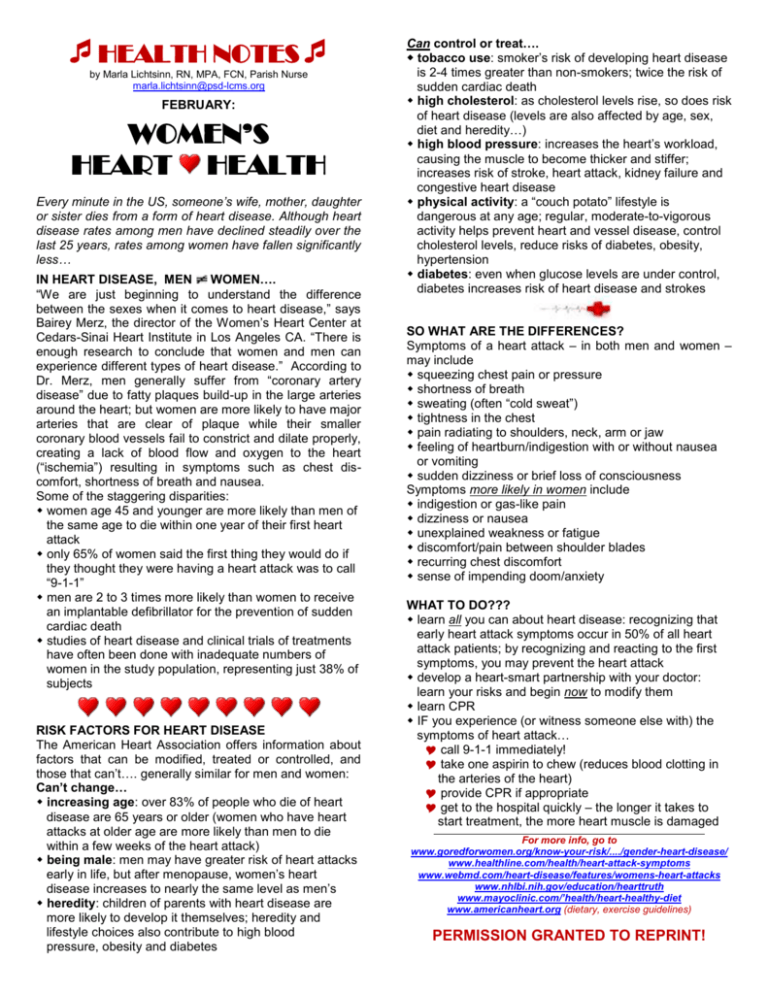
HEALTH NOTES by Marla Lichtsinn, RN, MPA, FCN, Parish Nurse marla.lichtsinn@psd-lcms.org FEBRUARY: WOMEN’S HEART HEALTH Every minute in the US, someone’s wife, mother, daughter or sister dies from a form of heart disease. Although heart disease rates among men have declined steadily over the last 25 years, rates among women have fallen significantly less… IN HEART DISEASE, MEN WOMEN…. “We are just beginning to understand the difference between the sexes when it comes to heart disease,” says Bairey Merz, the director of the Women’s Heart Center at Cedars-Sinai Heart Institute in Los Angeles CA. “There is enough research to conclude that women and men can experience different types of heart disease.” According to Dr. Merz, men generally suffer from “coronary artery disease” due to fatty plaques build-up in the large arteries around the heart; but women are more likely to have major arteries that are clear of plaque while their smaller coronary blood vessels fail to constrict and dilate properly, creating a lack of blood flow and oxygen to the heart (“ischemia”) resulting in symptoms such as chest discomfort, shortness of breath and nausea. Some of the staggering disparities: women age 45 and younger are more likely than men of the same age to die within one year of their first heart attack only 65% of women said the first thing they would do if they thought they were having a heart attack was to call “9-1-1” men are 2 to 3 times more likely than women to receive an implantable defibrillator for the prevention of sudden cardiac death studies of heart disease and clinical trials of treatments have often been done with inadequate numbers of women in the study population, representing just 38% of subjects RISK FACTORS FOR HEART DISEASE The American Heart Association offers information about factors that can be modified, treated or controlled, and those that can’t…. generally similar for men and women: Can’t change… increasing age: over 83% of people who die of heart disease are 65 years or older (women who have heart attacks at older age are more likely than men to die within a few weeks of the heart attack) being male: men may have greater risk of heart attacks early in life, but after menopause, women’s heart disease increases to nearly the same level as men’s heredity: children of parents with heart disease are more likely to develop it themselves; heredity and lifestyle choices also contribute to high blood pressure, obesity and diabetes Can control or treat…. tobacco use: smoker’s risk of developing heart disease is 2-4 times greater than non-smokers; twice the risk of sudden cardiac death high cholesterol: as cholesterol levels rise, so does risk of heart disease (levels are also affected by age, sex, diet and heredity…) high blood pressure: increases the heart’s workload, causing the muscle to become thicker and stiffer; increases risk of stroke, heart attack, kidney failure and congestive heart disease physical activity: a “couch potato” lifestyle is dangerous at any age; regular, moderate-to-vigorous activity helps prevent heart and vessel disease, control cholesterol levels, reduce risks of diabetes, obesity, hypertension diabetes: even when glucose levels are under control, diabetes increases risk of heart disease and strokes SO WHAT ARE THE DIFFERENCES? Symptoms of a heart attack – in both men and women – may include squeezing chest pain or pressure shortness of breath sweating (often “cold sweat”) tightness in the chest pain radiating to shoulders, neck, arm or jaw feeling of heartburn/indigestion with or without nausea or vomiting sudden dizziness or brief loss of consciousness Symptoms more likely in women include indigestion or gas-like pain dizziness or nausea unexplained weakness or fatigue discomfort/pain between shoulder blades recurring chest discomfort sense of impending doom/anxiety WHAT TO DO??? learn all you can about heart disease: recognizing that early heart attack symptoms occur in 50% of all heart attack patients; by recognizing and reacting to the first symptoms, you may prevent the heart attack develop a heart-smart partnership with your doctor: learn your risks and begin now to modify them learn CPR IF you experience (or witness someone else with) the symptoms of heart attack… call 9-1-1 immediately! take one aspirin to chew (reduces blood clotting in the arteries of the heart) provide CPR if appropriate get to the hospital quickly – the longer it takes to start treatment, the more heart muscle is damaged For more info, go to www.goredforwomen.org/know-your-risk/..../gender-heart-disease/ www.healthline.com/health/heart-attack-symptoms www.webmd.com/heart-disease/features/womens-heart-attacks www.nhlbi.nih.gov/education/hearttruth www.mayoclinic.com/’health/heart-healthy-diet www.americanheart.org (dietary, exercise guidelines) PERMISSION GRANTED TO REPRINT!
